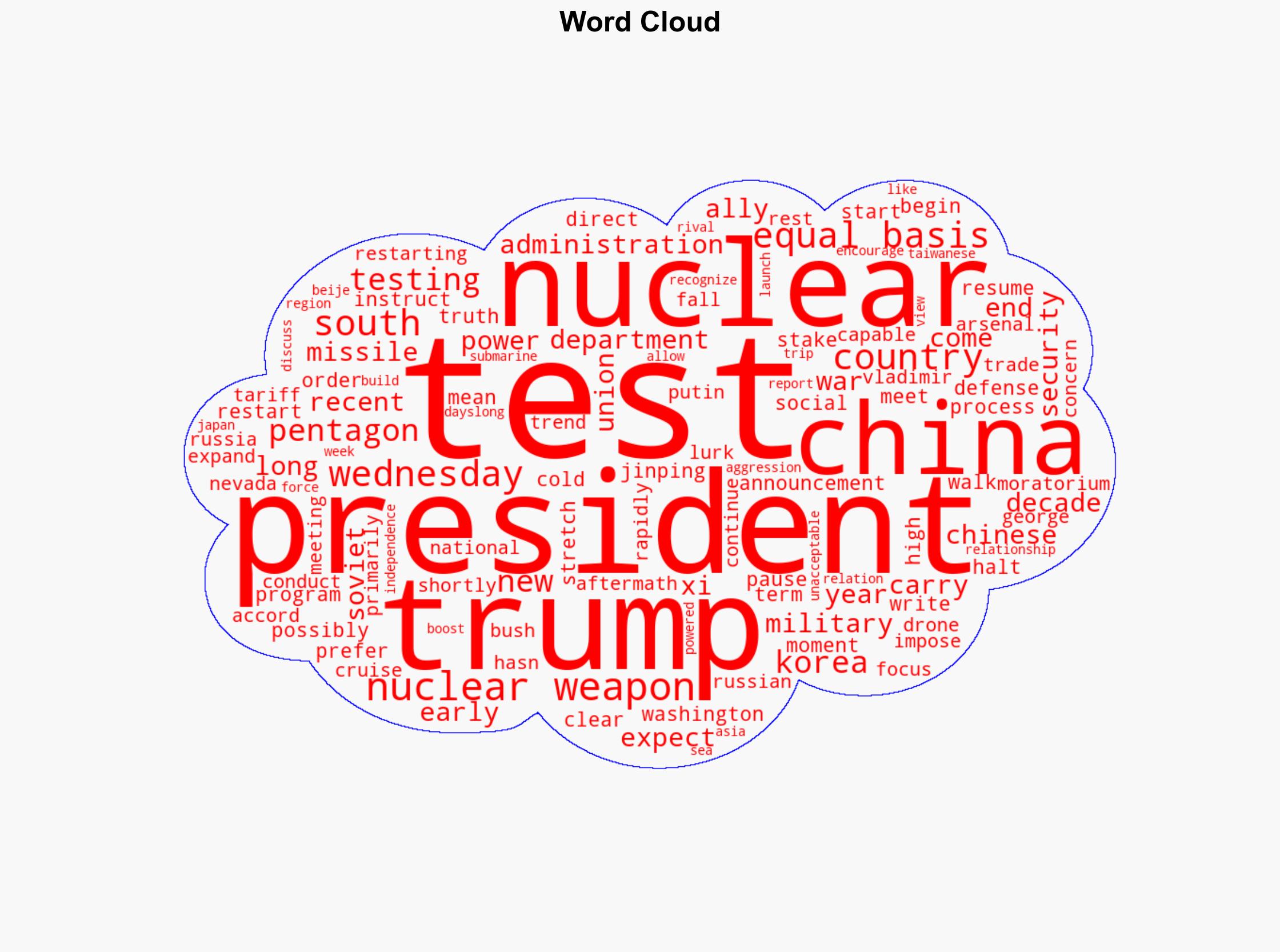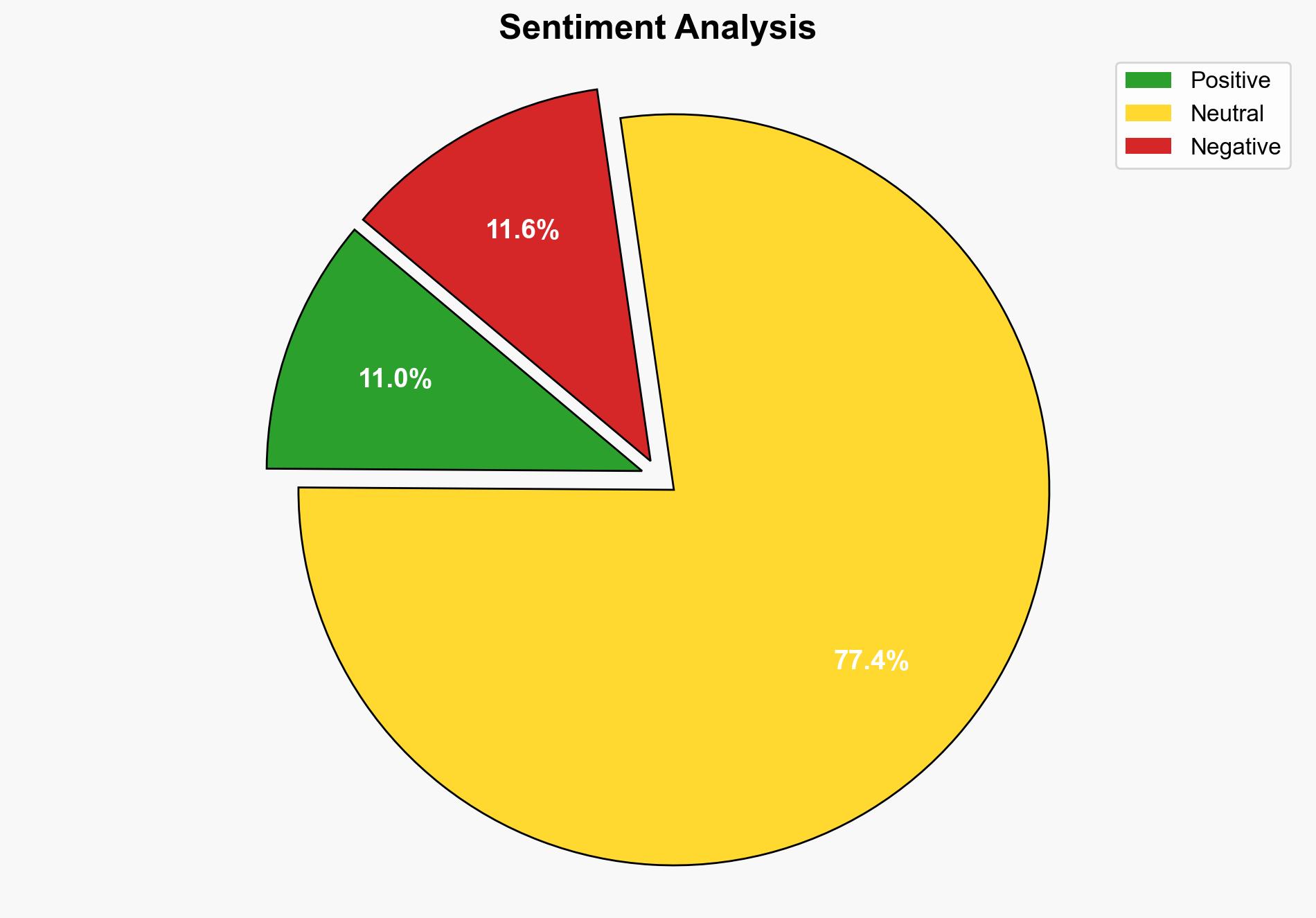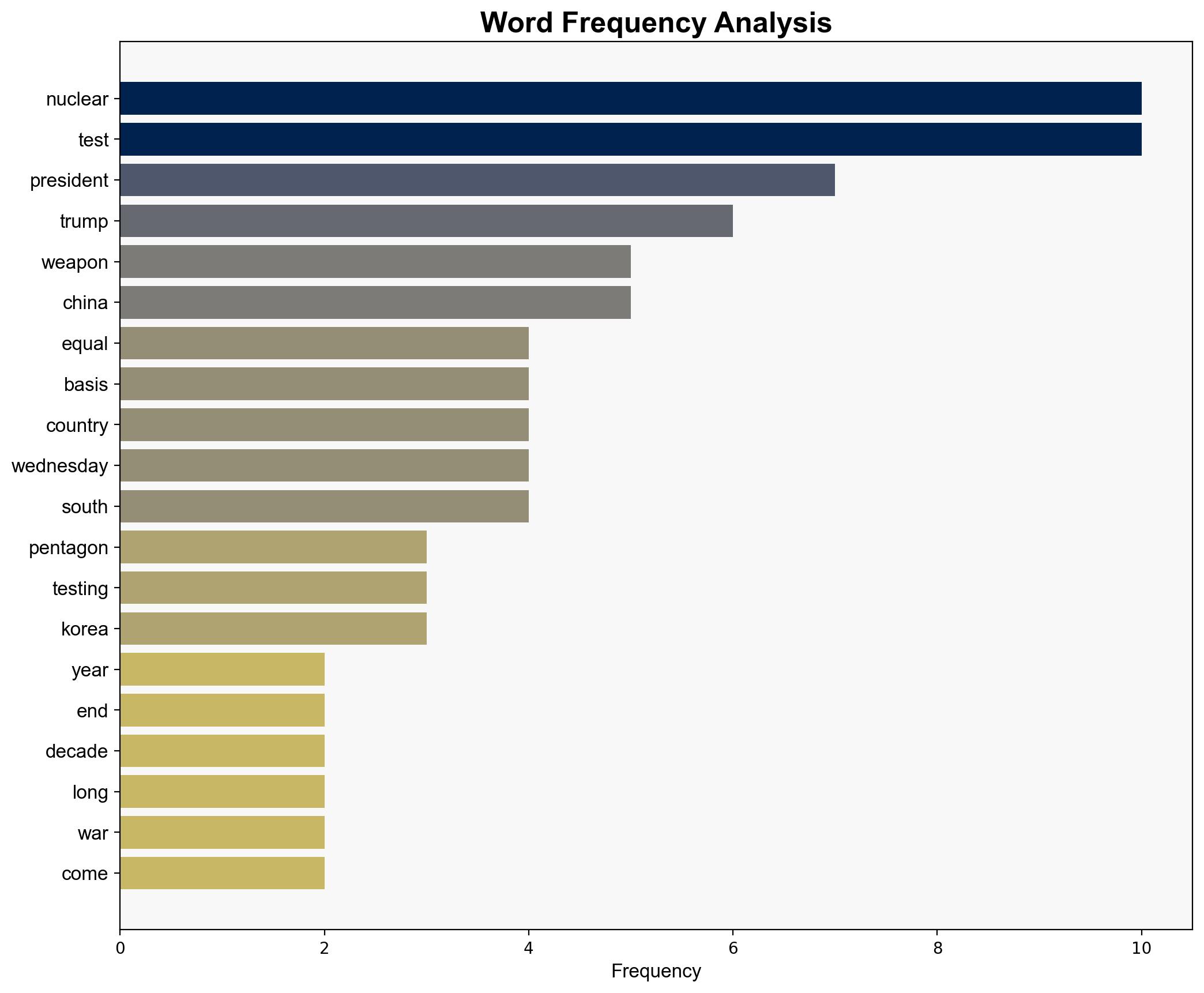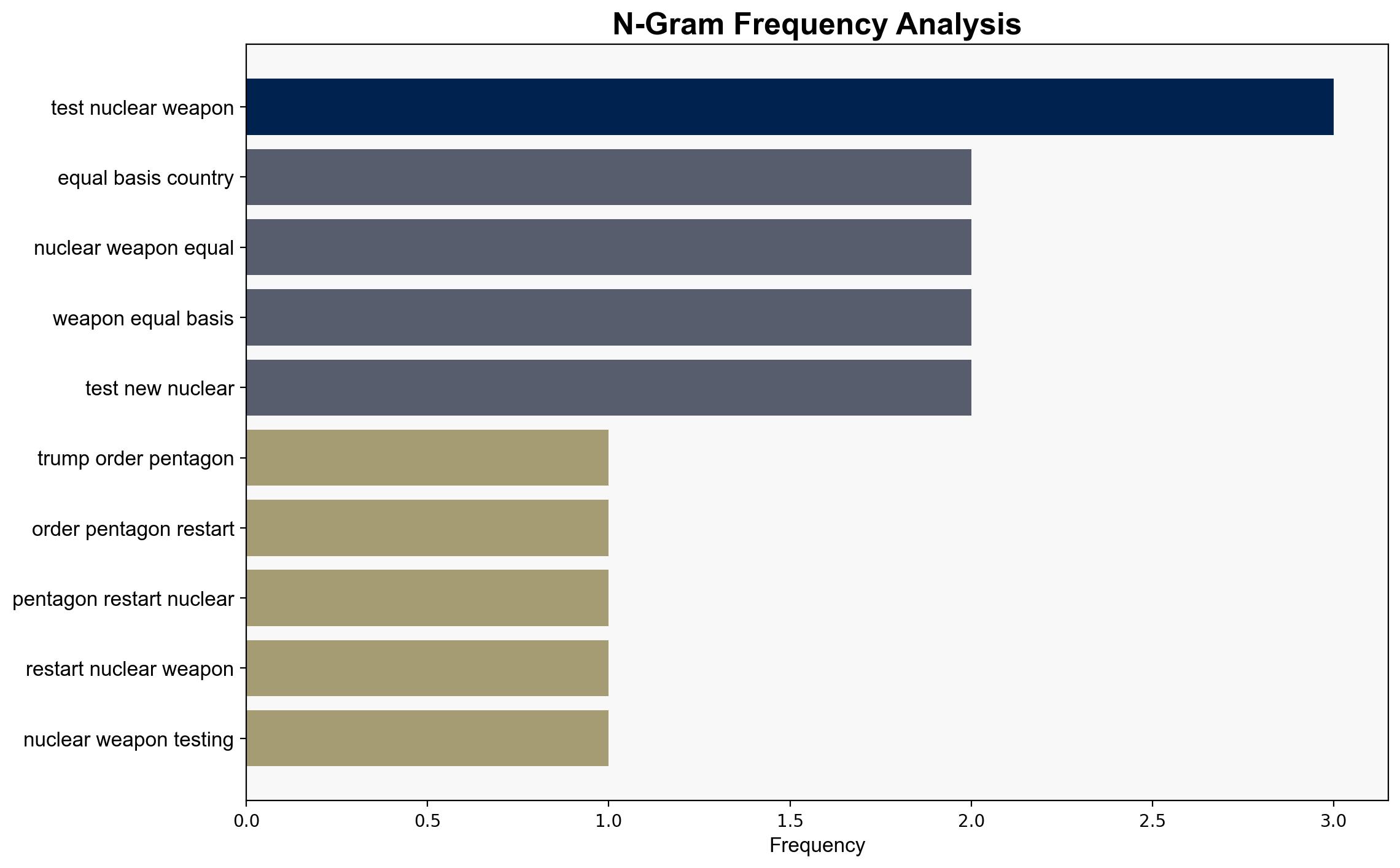Trump orders Pentagon to restart nuclear weapons testing after 33-year halt – CBS News
Published on: 2025-10-30
Intelligence Report: Trump orders Pentagon to restart nuclear weapons testing after 33-year halt – CBS News
1. BLUF (Bottom Line Up Front)
The strategic judgment indicates a moderate confidence level that the directive to restart nuclear weapons testing is primarily a geopolitical maneuver aimed at exerting pressure on China and Russia. The most supported hypothesis suggests this move is intended to strengthen the U.S. negotiating position in upcoming international engagements. Recommended action includes diplomatic engagement with allies to manage regional tensions and prevent escalation.
2. Competing Hypotheses
1. **Geopolitical Maneuvering Hypothesis**: The order to restart nuclear testing is a strategic move to counter perceived threats from China and Russia, aiming to reinforce U.S. military deterrence and leverage in international negotiations.
2. **Domestic Political Strategy Hypothesis**: The directive is primarily driven by domestic political considerations, aiming to project strength and garner support from specific political constituencies concerned with national defense.
Using ACH 2.0, the first hypothesis is better supported by the context of recent international tensions and the timing of Trump’s meetings with Chinese leadership, which align with broader strategic objectives.
3. Key Assumptions and Red Flags
– **Assumptions**: It is assumed that restarting testing will not lead to immediate international escalation. There is also an assumption that this move will effectively pressure China and Russia.
– **Red Flags**: The lack of explicit mention of allied reactions or international legal constraints on nuclear testing could indicate potential oversight or underestimation of global backlash.
– **Blind Spots**: Potential economic repercussions of increased military spending and the impact on non-proliferation treaties are not addressed.
4. Implications and Strategic Risks
– **Geopolitical Risks**: Potential escalation with China and Russia, leading to an arms race or increased regional tensions, particularly in the Asia-Pacific.
– **Economic Risks**: Increased defense spending could strain the U.S. budget and impact economic stability.
– **Psychological Risks**: Heightened public fear and anxiety over nuclear conflict could affect domestic and international perceptions of U.S. stability.
5. Recommendations and Outlook
- Engage in diplomatic dialogues with China and Russia to clarify intentions and reduce the risk of misinterpretation.
- Coordinate with allies to present a unified stance and mitigate regional tensions.
- Scenario-based projections:
- **Best Case**: Successful negotiation leads to de-escalation and strengthened international treaties.
- **Worst Case**: Escalation leads to a new arms race and destabilization of global security.
- **Most Likely**: Increased tensions with strategic posturing but no immediate conflict.
6. Key Individuals and Entities
– Donald Trump
– Xi Jinping
– Vladimir Putin
7. Thematic Tags
national security threats, geopolitical strategy, nuclear deterrence, U.S.-China relations, U.S.-Russia relations





